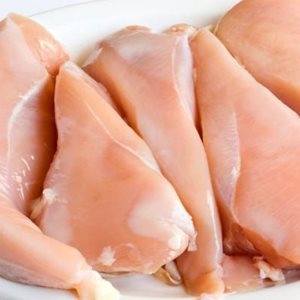 the School of Biology from the Australian National University took 281 samples around Canberra from three major supermarkets and a butcher, ABC News reports.
the School of Biology from the Australian National University took 281 samples around Canberra from three major supermarkets and a butcher, ABC News reports.Two thirds of the samples found with the common bacteria E.coli were found to be resistant to some form of antibiotic.
Four samples were found to be resistant to fluoroquinolone antibiotics, which are banned from use in Australian food-producing animals.
Researchers Belinda Vangchhia and Professor David Gordon from the ANU said their findings suggest that the food people consume is a significant source of antibiotic resistance.
"E.coli is known to cause common infections like urinary tract and other blood stream infections like septicaemia," Ms Vangchhia said.
"Just by consuming the meat we can be exposed to the antibiotic as well."
"It would be worth the relevant authorities going back through the steps of the processing to see where the introduction of antibiotic resistant bacteria might have occurred."
University of Sydney academic Dr Stephen Page, a veterinarian and clinical pharmacologist who consults for the Australian chicken industry, said it is highly unlikely Australian chickens are being fed banned fluoroquinolones at farm level.
Page believes contamination with resistant E.coli is happening elsewhere, and says the specific drugs do not help fatten up produce and are expensive.
Fluoroquinolones are only available in Australia through veterinary prescription in tablet and injection form for cats and dogs. The antibiotic is not available in liquid form to be put in chickens' water supply.
Stringent controls have also meant vets do not need to turn to strong antibiotics because existing drugs work.
"We have good management of poultry health in Australia so there would be no need to use them," Page said.
"I know nobody in the industry who would even contemplate an illegal practice, especially one that has only one outcome and that is undermining the world-class reputation of the chicken meat industry.
"There would be no financial gain in using them, only pain."
The Australian Chicken Meat Federation (ACMF) have said in a statement today that “the E. coli resistant to fluoroquinolones observed in the recent Canberra study is definitely not the result of the use of fluoroquinolone in the poultry industry. Fluoroquinolones are not and never have been approved for use in chickens in Australia.”
“The resistant E. coli were most likely acquired as a result of an environmental or human contamination during chicken production, processing or delivery and distribution. The rate of fluoroquinolone resistant E. coli found is consistent with environmental contamination, and roughly equivalent to the rate of fluoroquinolone resistance that would be seen in the human population in Australia.”
The ACMF said the poultry industry is strongly supportive of Australia’s cautious approach to the use of antibiotics in food producing animals and “actively promotes the judicious use of antibiotics to ensure minimal likelihood that resistance develops while ensuring the birds’ health and welfare are taken care of appropriately.”





